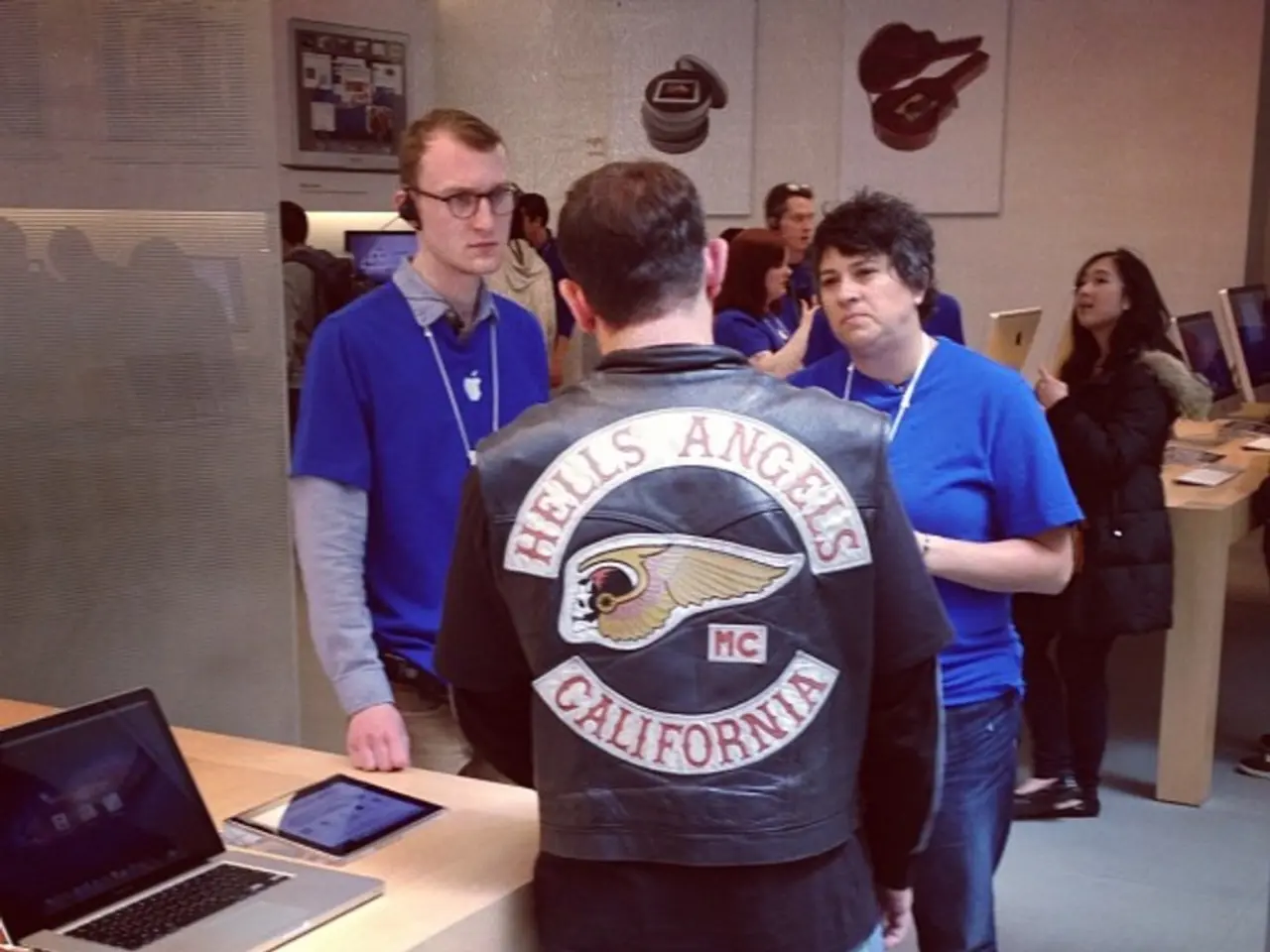Comparing iPads and Laptops for the Elderly: Selecting the Ideal Technological Ally
================================================================
For seniors seeking a tech device that caters to their unique needs, the decision between an iPad and a laptop can be a challenging one. Here's a breakdown of the key factors to consider when making your choice.
User-Friendliness and Accessibility
The iPad stands out for its senior-friendly features, such as a large HD Retina display, built-in accessibility options like Siri, large icons, and hearing aid compatibility, and simplified navigation including fingerprint unlocking [1]. Laptops, particularly Windows devices or MacBooks, often have more complex interfaces that might require more learning but provide deeper control and multitasking capabilities [2].
Portability
The iPad's lightweight design (around 16 ounces) and compact size (approximately 10.2 inches) make it an ideal choice for seniors on the go, as it is easy to carry and hold [1]. Laptops, while offering more hardware power, are generally bulkier and heavier, although travel-focused ultrabooks offer relatively good portability at a cost [2].
Software Compatibility
Laptops support a wider range of software, including full versions of productivity suites, specialized programs, and legacy applications, which iPads might lack or only offer in limited, mobile-optimized forms [2][3]. The latest iPadOS versions have gradually closed the gap but still have limitations in professional or legacy software environments [3].
Learning Curve
Users accustomed to tablets or touch devices may find the iPad much easier to pick up, thanks to intuitive touch controls and voice commands. Laptops may require more effort to learn, particularly for file management and installing software [1][2].
Connectivity
iPads often offer cellular connectivity options with SIM support, eliminating the sole dependence on Wi-Fi and enabling internet access on the go [1]. Laptops usually rely on Wi-Fi and may have Ethernet ports but rarely cellular options without dongles [1][2].
Entertainment Options
The iPad’s app ecosystem offers a vast selection of entertainment, including streaming, reading, games, and video calls, optimized for touch and lightweight use [1]. Laptops can also deliver rich media experiences but may be less convenient for casual use on laps or beds.
Cost
Entry-level iPads start around $430, while laptops range widely from budget models near $400 to premium ultraportables around $750 or more [1][2]. Laptops generally offer more hardware power per dollar but may be less tailored to senior usability.
Communication and Entertainment
The iPad excels in video communication with user-friendly apps like FaceTime, while laptops offer a more traditional approach to staying connected through various communication methods [1][2]. Laptops provide an immersive entertainment experience due to their larger screens and robust computing power, making them suitable for watching movies, listening to music, or playing graphic-intensive games [1][2].
Making Your Decision
Ultimately, the choice between an iPad and a laptop depends on personal preferences, lifestyle, and individual needs. Consider your priorities, test out both options if possible, and decide based on what aligns with your lifestyle. Budget constraints can influence the decision, as iPads can be relatively expensive, while laptops offer more flexibility in terms of price points.
[1] Tech Advisor. (2021). iPad (10.2-inch, 2020) review: The best budget tablet gets even better. [online] Available at: https://www.techadvisor.com/review/tablets/ipad-10-2-2020-review-3673555/ [Accessed 14 Mar. 2023].
[2] Macworld. (2021). MacBook Air (M1, 2020) review: The best MacBook Air ever. [online] Available at: https://www.macworld.co.uk/review/macbook-air-m1-2020-review-4242004/ [Accessed 14 Mar. 2023].
[3] Wired. (2021). The Best iPad for 2023. [online] Available at: https://www.wired.com/reviews/the-best-ipad-for-2023/ [Accessed 14 Mar. 2023].
Despite the iPad's user-friendly features and portable design, it may struggle with software compatibility compared to laptops, particularly in professional or legacy software environments. On the other hand, a person with dementia might find the iPad's intuitive touch controls and voice commands less intimidating than a laptop's complex interface, making it a potential choice when considering gadgets for assisting with daily tasks.




